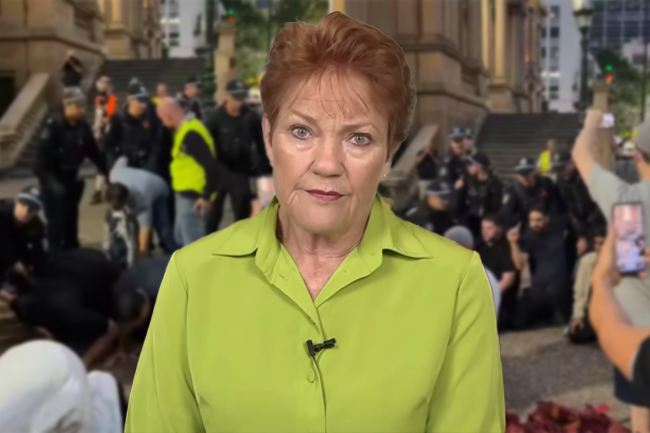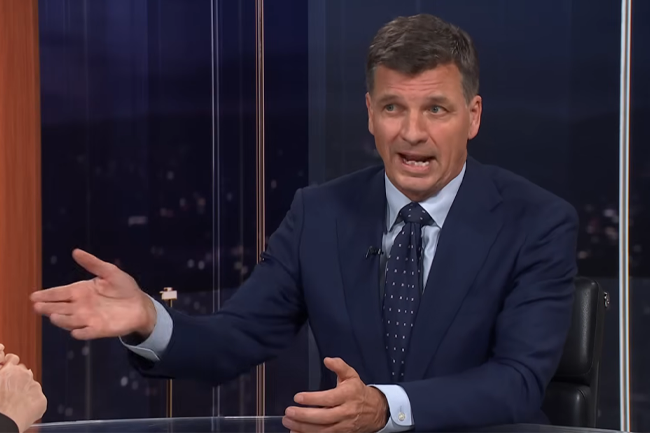Leading up to the Federal Election, Opposition Leader Peter Dutton has found a new distraction by targeting criminals with dual citizenship for deportation. Dr Abul Rizvi explains why Dutton's latest Trumpian move is doomed to fail.
IN THE Sydney Morning Herald, Paul Sakkal reported that Opposition Leader Peter Dutton is considering a referendum on the deportation of certain dual citizens. There are few details but being able to more readily deport dual citizens has long been a cherished desire of Dutton. It’s just pure Trump.
History of this issue
In 2015, legislation was introduced enabling the cessation of Australian citizens’ citizenship.
The Department of Home Affairs states:
‘Citizenship could be ceased by determination of the minister, or in specified circumstances. Under these provisions, citizenship cessation would come into effect by operation of law (automatically). On automatic cessation, the Minister for Home Affairs was required to give notice to the individual. These provisions were repealed when the Australian Citizenship Amendment (Citizenship Cessation) Act 2020 came into effect.’
There were three provisions under which citizenship could be ceased:
- section 33AA (Renunciation by conduct)
- section 35 (Service outside Australia in armed forces of an enemy country or a declared terrorist organisation)
- section 35A (Conviction for terrorism offences and certain other offences)
The Minister was required to table a report in Parliament for the number of instances in which citizenship was ceased or a determination was made to cease citizenship. Between 12 December 2015 and 11 June 2023, there have been 15 such reports to Parliament.
In the first three of these reports submitted by Peter Dutton, there were zero citizenship cessations. The first instance of a citizenship cessation was in the fourth report issued on 11 December 2017 when one dual citizen was unsuccessfully issued a notice of cessation.
In his 11 June 2019 report, Dutton said he issued two determinations to cease the citizenship of two dual nationals who had been found to be members of a declared terrorist organisation. In his 11 December 2019 report, Dutton indicated one individual had repudiated their allegiance to Australia and another seven had been found to be fighting for a declared terrorist organisation outside Australia.
In his 11 June 2020 report, Dutton said he had found two individuals who had acted ‘inconsistently with their allegiance to Australia by engaging in terrorism-related conduct’ and another four were ‘found to be in the service of a terrorist organisation’.
In his 11 December 2020 report, Dutton said one individual ‘had renounced their Australian citizenship by acting inconsistently with their allegiance to Australia by engaging in terrorism-related conduct’ and that he had issued a determination for one individual who had been convicted of two offences for which the person had been sentenced for periods of three years or more.
Once Dutton left the Home Affairs Ministry, no further cases of cessation were reported either by Karen Andrews or Clare O’Neil.
The Citizenship Act was amended from 18 September 2020 to narrow the range of circumstances in which citizenship could be ceased to:
- Section 36B (Citizenship cessation for certain conduct); and
- Section 36D (Citizenship cessation for certain convictions).
The relevant sections of the Act were further amended from 8 December 2023 to the present to take into account two significant High Court decisions:
- Alexander v Minister for Home Affairs [2022] HCA 19 (Alexander) on 8 June 2022; and
- Benbrika v Minister for Home Affairs [2023] HCA 33 (Benbrika) on 1 November 2023.
These decisions found that the Citizenship Act provisions Dutton had established and used were unconstitutional as they were effectively punitive in nature (in Australia, the responsibility of the courts, not ministers).
These cases established that a citizenship revocation power is punitive if:
(a) the purpose of the power identified in the statute is one of denunciation of and retribution for criminal conduct — as was held in Alexander and Benbrika 2; or
(b) the power is not reasonably capable of being seen as necessary for a legitimate non-punitive purpose — the dispositive issue in Jones.
The amendments repealed the invalid provisions and established a revised citizenship cessation regime. These changes appropriately address the implications of the High Court judgments in Alexander and Benbrika.
Current citizenship cessation power
The current citizenship cessation power, which Dutton finds too restrictive, requires the Minister to apply to a court to cease a person’s citizenship if:
- the person is aged 14 years or over;
- the person is a dual-national;
- the person has been convicted of one or more serious offences;
- the court has imposed a period or periods of imprisonment that total at least three years or more; and
- the conduct the offence relates to is so serious and significant that it demonstrates that the person has repudiated their allegiance to Australia.
Serious offences specified in the Act, are provided under the Criminal Code and include:
- certain terrorism offences including breaches of Extended Supervision Orders and Interim Supervision Orders;
- treason;
- espionage;
- foreign interference;
- advocating mutiny;
- foreign incursions and recruitment offences; and
- certain explosives and lethal devices offences.
In deciding whether a person’s conduct is so serious and significant that it demonstrates they have repudiated their allegiance to Australia, the court must consider:
- whether the person has engaged in conduct that demonstrates a repudiation of the values, democratic beliefs, rights and liberties that underpin Australian society;
- the degree, duration or scale of the person’s commitment to, or involvement in, the conduct constituting to which the offence relates;
- the intended scale of the conduct to which the conviction relates;
- the actual impact of the conduct to which the conviction relates; and
- whether the conduct caused, or was intended to cause, harm to human life or a loss of human life.
What might Dutton want in a referendum?
Apart from the political advantage of shifting the current political debate back to national security issues, Dutton may argue he wants a referendum for two reasons. First, to take the power of citizenship cessation away from judges and give it to ministers. Second, to broaden the range of circumstances where citizenship cessation is enabled. He is unlikely to release many details on this.
Dutton will know that winning such a referendum would be impossible. Australians trust judges far more than they trust politicians to use such an extraordinary power responsibly. He would never go ahead with such a referendum.
In fact, the moment he is asked how such a Constitutional amendment would be drafted, he will move into deflection mode and simply say he will work that out if elected. The Australian public will be given zero details on the proposed Constitutional amendment or the referendum question ahead of the Election.
Getting the political debate back to a space where he can use his dog-whistling skills is the objective, not actually making any Constitutional change.
Dr Abul Rizvi is an Independent Australia columnist and a former Deputy Secretary of the Department of Immigration. You can follow Abul on Twitter @RizviAbul.
 This work is licensed under a Creative Commons Attribution-NonCommercial-NoDerivs 3.0 Australia License
This work is licensed under a Creative Commons Attribution-NonCommercial-NoDerivs 3.0 Australia License
Support independent journalism Subscribe to IA.

Related Articles
- CARTOONS: Dutton's dodging cyclones
- Dutton’s 5-step disaster plan: Take to the caravans!
- EDITORIAL: Dutton’s 5-step disaster plan — take to the caravans!
- Dutton and Tate dodge Cyclone Alfred Scomo style
- CARTOONS: Dutton's SMOGE smacks of lack of imagination














